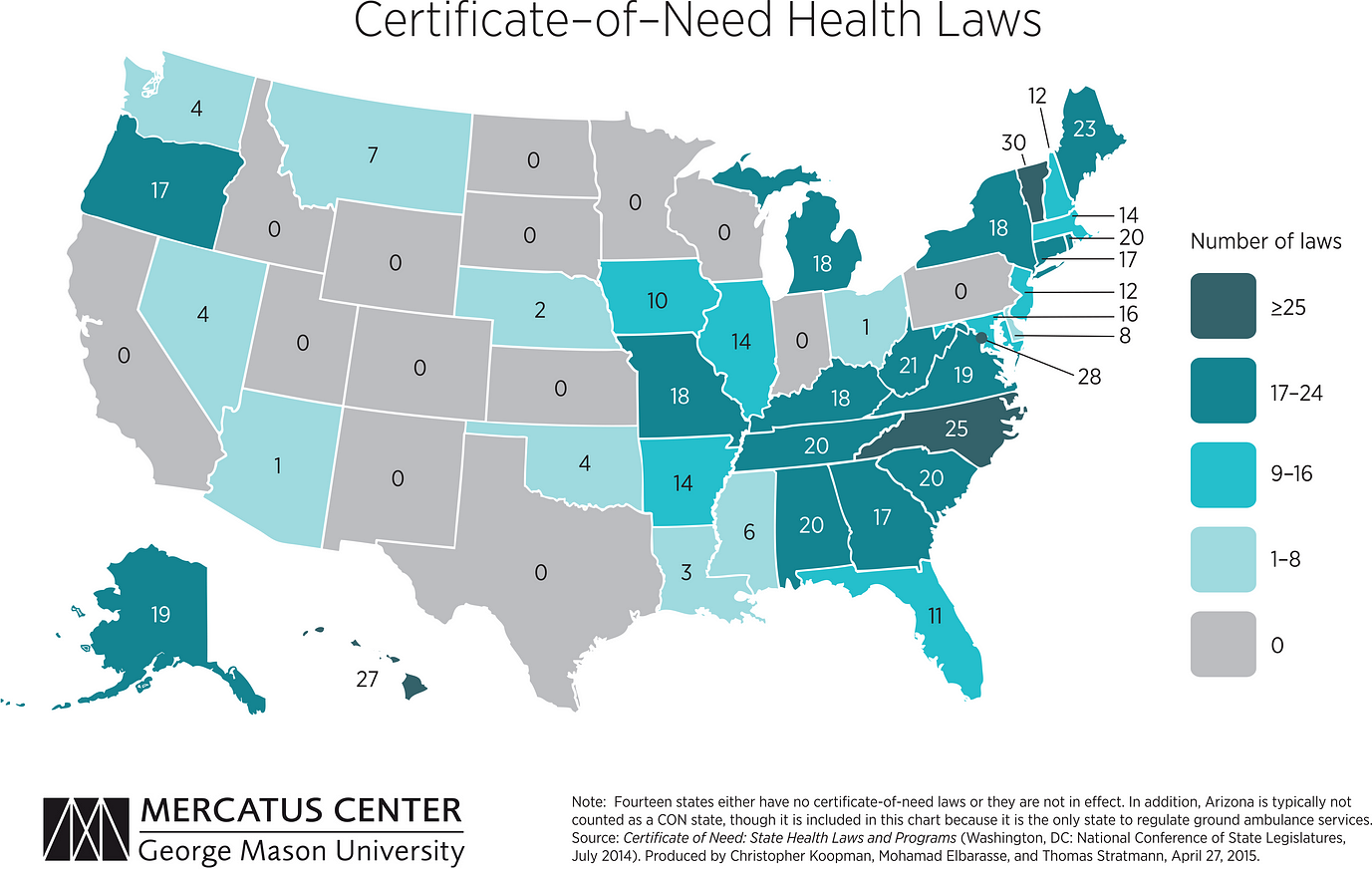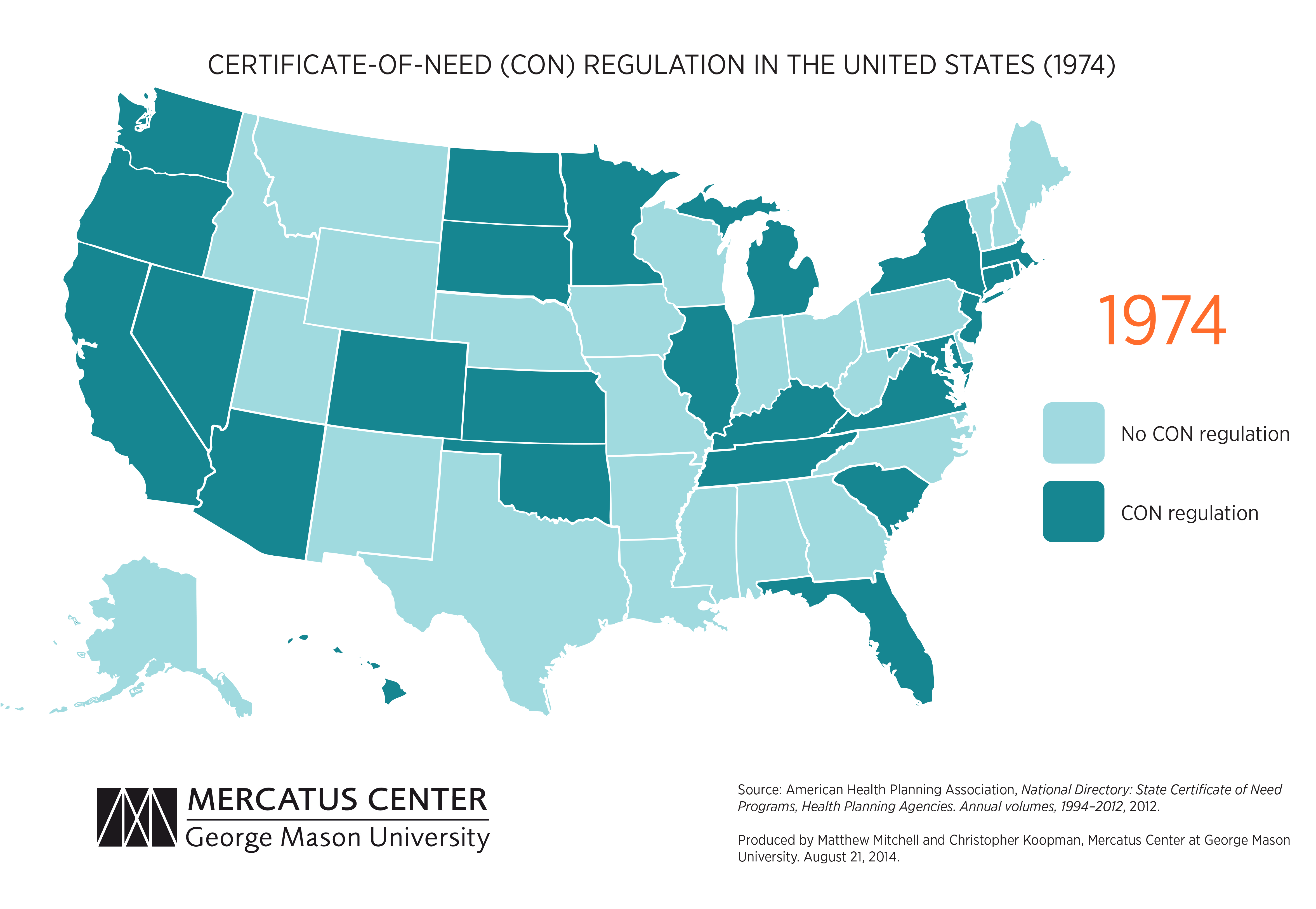How State Certificate-of-need Laws Affect Access to Health Care
by Christopher Koopman, Thomas Stratmann and Mohamad Elbarasse, Medium, May 12, 2015
Currently, 36 states and the District of Columbia prohibit entry or expansion of healthcare facilities through “certificate-of-need” (CON) programs. These laws, which require government permission before a facility can expand, offer a new service, or purchase certain pieces of equipment, were enacted in the belief that restricting entry would lower health care costs and increase availability of these services to the poor.

These regulations were initially enacted under the theory that unregulated market competition would drive medical providers to overinvest in facilities and equipment, raising the cost of medical care.
A recent study by Thomas Stratmann and Jacob Russ, however, finds that these regulations do little to increase access to health care for the poor, but they instead limit the supply of such services. For example, States with Certificate of Need programs are associated with:
- 131 fewer beds per 100,000 persons.
- A reduction by between 1 and 2 hospitals providing MRI services per 500,000 persons.
- A reduction of 37 percent in the number of hospitals offering CT scans.

As these maps show, the first state to institute a CON program was New York in 1964, followed by Rhode Island, Maryland, California, and 20 other states over the next 10 years. In 1974, Congress passed the National Health Planning and Resources Development Act, requiring states to implement CON requirements in order to receive funding through certain federal programs. Louisiana was the only state not to implement a CON program during this time.
In 1987, the federal government repealed the CON mandate, and throughout the 1980s, states began retiring their CON programs. By 1990, Arizona, California, Colorado, Idaho, Kansas, Minnesota, New Mexico, South Dakota, Texas, Utah, Wisconsin, and Wyoming (a total of 12 states) repealed their CON programs. This left 38 states and the District of Columbia with these laws, although Wisconsin reinstated their program in 1993.
By 2000, Indiana, North Dakota, and Pennsylvania had repealed their programs. This brought the number of states with CON programs to 36 (and DC). Since 2000, Wisconsin is the only state to repeal its program.
read ... How State Certificate-of-Need (CON) Laws Affect Access to Health Care